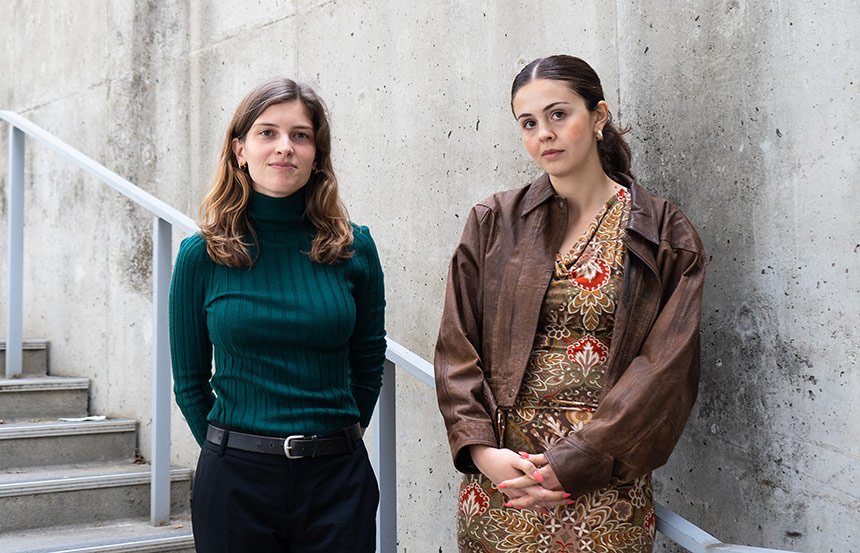
By Andrew Cohen
The figures are jarring, and the prospects for reform appear bleak.
In 2021, the most recent year with complete data, nearly 49,000 people died from gun-related injuries in the United States and 81% of murders there involved a firearm — the highest percentage since at least 1968, when such record-keeping was initiated. In 2022, the Supreme Court underscored its expansive view of the Second Amendment in New York State Rifle Pistol Association v. Bruen, ruling that a state’s gun regulation must be consistent with the nation’s historical tradition of firearm regulation.
Even so, Berkeley Law’s student-led Gun Violence Protection Project (GVPP) remains fervently committed to reducing the number of deaths and injuries caused by guns. Veering toward innovative strategies and away from disillusionment, the group now works with the nonprofit Global Action on Gun Violence, focusing on ways that international law can hold American gun manufacturers accountable.
“In pursuing international impact litigation claims, Global Action on Gun Violence has been able to find success holding these manufacturers liable because international claims may avoid special protections given to them in the U.S.,” says 3L Gwen Iannone, who co-leads the group with 2L Grace Geurin-Henley.
One of 40 Student-Initiated Legal Services Projects within Berkeley Law’s Pro Bono Program, GVPP over its six-year history has developed guides, factsheets, and other educational resources on California’s Gun Violence Restraining Order laws — and the ways in which these laws can help keep communities safe. Its students have also conducted research on the nationwide effects of recent Second Amendment Supreme Court decisions.
This year’s students are helping Global Action on Gun Violence use litigation and policy advocacy to promote gun industry reform in the U.S., end international gun trafficking, and reduce gun violence. In doing so, they develop pragmatic legal skills while learning about the ways that ineffective U.S. gun industry regulation contributes to gun crimes far beyond its borders.
“Most people who grow up in the U.S. think about gun violence from an American lens, given how it has become an overwhelming and polarizing issue in the U.S. and given the nation’s distinctive history with guns and gun regulation,” Geurin-Henley says. “As we watch the avenues for regulation be further constricted in this country, we think this is a particularly interesting time for our students to learn more about global gun issues.
“We’re exploring the ways that U.S. gun laws have negatively affected the international community, and comparing some of the ways that other countries have addressed gun violence.”
Developing versatile skills
The group’s 13 students meet biweekly. Supervising attorney Jonathan Lowy, the founder and president of Global Action on Gun Violence, often joins the meetings. The students discuss their research process, ask questions, get feedback, and receive additional assignments.
“GVPP is research based, which gives students foundational experience that will be useful whether they pursue a career in the public sector, private sector, or both,” Iannone says. “Along with research skills, the group meetings provide our members with opportunities to discuss research, troubleshoot problems they’ve encountered in their research, and gain experience interacting with an experienced attorney.”
Exploring novel litigation and policy strategies has become more important on the heels of the Bruen case. Several courts have used that decision to strike down gun restrictions around the country, including, the federal ban on gun possession by people under domestic violence restraining orders.
“This new test makes it more difficult for states to regulate firearms,” Iannone explains, “as it asks courts to compare current gun regulations with regulations from a time when American society was extremely different.”
For Geurin-Henley, who stopped by the GVPP table at Berkeley Law’s fall Pro Bono Fair early in her 1L year, the stakes felt too important to ignore. Having grown up in Tennessee and Oregon, and having lived in Sacramento and New York City, she has experienced all sides of America’s wide-ranging opinions on guns.
“I’ve had a longstanding interest in gun violence prevention advocacy, but hadn’t worked specifically in the area,” she says. “I think this work is critically important at all times, but it’s a particularly interesting moment to be considering ways to prevent gun violence given the recent and upcoming Second Amendment decisions by the Supreme Court.”
Recognizing gun violence’s disproportionate impact on low-income communities and communities of color, GVPP also works to center racial, economic, and gender justice by addressing the impact of such violence on poor people, non-white communities, and women around the world.
The group is keeping a close eye on U.S. v. Rahimi, a pending case the Supreme Court will decide this term about whether the government can prohibit domestic abusers from having firearms. In the meantime, it’s full steam ahead exploring how international law can mitigate the harm caused by gun violence.
“This international strategy empowers our students to stay passionate about work in gun violence prevention,” Iannone says, “because it allows for a route to success that circumvents the involvement of Second Amendment jurisprudence.”